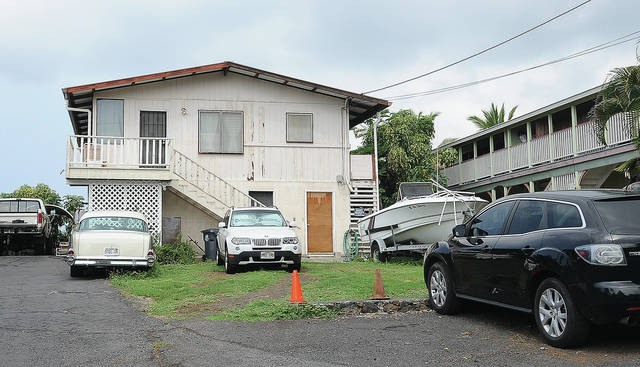HILO — Hawaii County has tossed out the bids for a sewer project in Lono Kona and plans to rebid the project next week.
The bidding delay won’t throw the project off schedule, Environmental Management Director Bill Kucharski said Friday.
Officials in November had estimated completion by July 2019. It’s now set to be complete by December of that year.
Kucharski said the bids, anticipated to be from $5 million to $6 million, largely came in closer to $7 million.
A $4 million U.S. Department of Agriculture Rural Utilities Service Grant will fund the bulk of the program. The County Council also approved authorizing a $2.4 million general obligation bond, which will be repaid by property owners hooking up to the system.
The project will be built mauka of Kuakini Highway in an area residents have dubbed “Hamburger Hill.”
Kucharski said the county is asking the federal government for additional grant money, as well.
“We’re moving forward on this and we expect that this is going to move forward in a positive way,” Kucharski said.
The Lono Kona sewer system improvement district will include 145 assessment units — the equivalent of 268 single-family homes — on 110 lots. Lot owners will be assessed an estimated $9,090 per single-family equivalent unit. The county will allow property owners to make annual payments around $498 per single-family equivalent.
“It would be a travesty if we lost the funding opportunity they gave us,” Kona Councilman Dru Kanuha, who represents the area, said at the council meeting initially approving the bond issue. “We have a mandate that we have to get off cesspools.”
The subdivision, created in 1962, faces sanctions from the U.S. Environmental Protection Agency. The design and bid process is expected to take at least a year.
Several landowners within Lono Kona received violation notices from the U.S. Environmental Protection Agency for their continued use of large-capacity cesspools. The project area is a higher-density urbanized area where lot sizes generally do not have sufficient area for on-site disposal systems that require leach fields, according to county consultants.
The EPA banned large-capacity cesspools in 1999 and mandated their closure by 2005.
At a 2015 public hearing, residents had mixed reactions about the necessity and cost of the project. But few had outright opposition. The residents voted to tax themselves to pay for the project.


